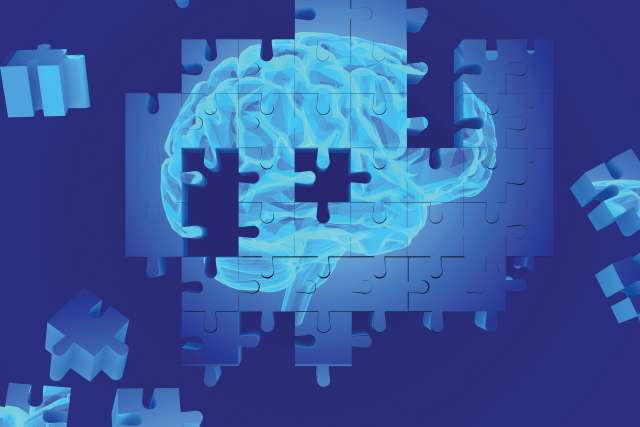For Black Americans, mental health is deeply influenced by the country’s history of racism, centuries of generational trauma and daily micro-aggressions and discrimination.
“The labor of being Black is like really swimming in mud and to think about swimming in clear water feels unattainable to a lot of folks,” said Nicole Green, PhD, executive director of UCLA Counseling and Psychological Services.
Dr. Green was among five Black mental health professionals appearing Feb. 9 at “Black Minds Matter: Exploring Trauma, Dispelling Stigmas and Promoting Wellness,” the first UCLA Health webinar to focus specifically on Black mental health.
Moderated by Eraka Bath, MD, an associate professor of psychiatry at the Jane and Terry Semel Institute for Neuroscience and Human Behavior at UCLA, the panelists discussed a range of topics, from barriers to care and sustaining anti-racism efforts to code-switching and impostor syndrome.
“Our ethnicity and the color of our skin can dictate almost everything about our mental health and how we’re perceived by other people,” said Gail Wyatt, PhD, a professor of psychiatry at the UCLA Semel Institute and director of the Center for Culture, Trauma and Mental Health Disparities. “So we have to take the responsibility of reclaiming our mental health, defining it for ourselves and being the first ones to want to protect it.”

The panel also included Curley Bonds, MD, chief medical officer for the Los Angeles County Department of Mental Health Services and a clinical professor of psychiatry and biobehavioral sciences at the UCLA Semel Institute, and Derek Novacek, PhD, a postdoctoral fellow at the David Geffen School of Medicine at UCLA.
Other topics covered during the 90-minute Zoom conversation:
Barriers to care: Black Americans have experienced discrimination so consistently for so long they may not recognize the toll it takes on mental health, Dr. Wyatt said: “Identifying mental health is a struggle.”
Physicians and other health care providers also do not routinely consider or assess discrimination as a risk factor for good health.
“Racism and discrimination are associated with so many mental health conditions: depression, anxiety, even serious mental illness,” Dr. Novacek said. “So if we really want to talk about reducing physical health disparities, reducing mental health disparities, we need to measure the causes and understand what’s contributing to them. One way of doing that is to include measures of discrimination so health care providers can understand the patients that they’re working with.”
Racial discrimination is a more reliable predictor of depression and post-traumatic stress disorder than childhood sexual abuse and all kinds of other violence, Dr. Wyatt said. “These are experiences of trauma that, in our current system, we don’t even identify as traumatic,” she said. “This was something that Black people just didn’t talk about, even with their therapist.”
Black psychiatrists and psychologists are underrepresented among mental health professionals, Dr. Bonds said, comprising just 2%, “so we can’t be the only ones identifying this.”
“If other people are out there asking the questions, it also gives permission for people to talk about it,” he said. Medical racism also plays into access to medication for mental health conditions, he said: “The same medications work in all populations equally.”
Dr. Bath noted that Black people are less likely than white people to get antidepressants and psychotherapy.
Improving training: Developing cultural humility and sensitivity requires more than the “one and done” training that’s become more popular after the racial reckoning of 2020. Dr. Green said all clinicians need “some base competency around not just individual racism or interpersonal racism and micro-aggressions but structural racism and systemic racism that you can’t really see and it’s kind of in the air.”
“It takes a lot of learning,” she said. “While the one-and-done trainings are a good start of providing education and language and fluency, the real work of continued dialogue and how we conceptualize clients and thinking about intervention, I think we are constantly needing to move that ball forward. I don’t know that training programs, even today, have gotten that far.”
Dr. Novacek, the most recent graduate on the panel, said cultural awareness wasn’t part of his training in clinical psychology.
“It really needs to be something that’s talked about from day one and integrated into every type of course and training and rotation and supervision experience,” he said … “There’s got to be a commitment — from an institutional level, from a program departmental level — to make this a core component of training and education, both of the students and of the faculty and supervisors and the people who are responsible for training the next generation of providers.”
It’s not just about the training, Dr. Bonds added, but ensuring that “the people in training reflect the diversity of the population.”
Code-switching and impostor syndrome: “If you don’t know how to code-switch, you will not survive,” Dr. Wyatt said of the practice of adopting different styles of speech or behavior depending on the setting and/or company. “If you’re at a cocktail party and you come in in beachwear, you’re not code-switching.”
Dr. Wyatt said she first learned about code-switching as a child from her family, who told her, “When you go into stores, you don’t touch things, because people will think you’re stealing and you’ll be arrested.”
“Our parents were trying to protect us,” she said. “It’s really relevant for everyone but particularly for people who are not white to understand perhaps people are responding to the fact that they don’t look or speak or act like most other people do.”
Critics of code-switching say people should be who they are regardless of context, but Dr. Wyatt said she’s “gotten a lot further by skipping ahead and figuring out: where am I going in this world and what do I need to do to get there.”
Code-switching makes life easier, she said: “Decide who you are and the frame in which you want to operate, and you can code switch very naturally in the way that you’re comfortable. You don’t have to do it for anyone else.”
Dr. Green said code-switching can be exhausting when it’s accompanied by self-doubt about whether it alienates or covers up one’s true self. “It’s OK to have a professional self and a more personal, intimate self,” she said, “and not everybody gets all-access to you.”
Impostor syndrome is the fear that you don’t belong where you are or of being found out as a fraud. This notion affects high-achievers in all kinds of professions, including doctors and professors, Dr. Wyatt said, adding that it can be a lifelong issue without support and uplift from friends and mentors.
Sustaining anti-racism efforts: All panelists agreed that anti-racism efforts must remain ongoing to sustain real change.
“Anti-racism is a practice. It’s not a skill you can just achieve,” Dr. Novacek said. “The work is never really done until we’ve eliminated all these disparities and inequities. … It can’t be something that just trends every February during Black History Month.”
“Anti-racism is a process as opposed to an outcome,” Dr. Green said. “It’s an undoing of a lot of things. ... It’s an ongoing pursuit of how to not just to make things anti-racist, but to make things just and to make things whole for people.”
Dr. Bonds said it’s the responsibility of people of color who are in positions of authority to further the conversation and to speak up for those less empowered.
“I think of our brothers and sisters who are incarcerated, who’ve lost the right to vote because of the new Jim Crow. I think about the people who are living on the streets in L.A. who are unsheltered and who can’t necessarily go to a politician and say, ‘I deserve housing.’ We can do that,” he said. “If we can make it so that people who own the wealth in this country recognize that a rising tide lifts all boats … it’s good not just for Black people, but for all people.”
Dr. Wyatt’s message was to value yourself and have compassion and forgiveness.
“People are going to make a lot of mistakes while we learn what anti-racism really is,” she said. “And while we may not make it, we can get better every day.”
For more information, visit the website at UCLA Health.





